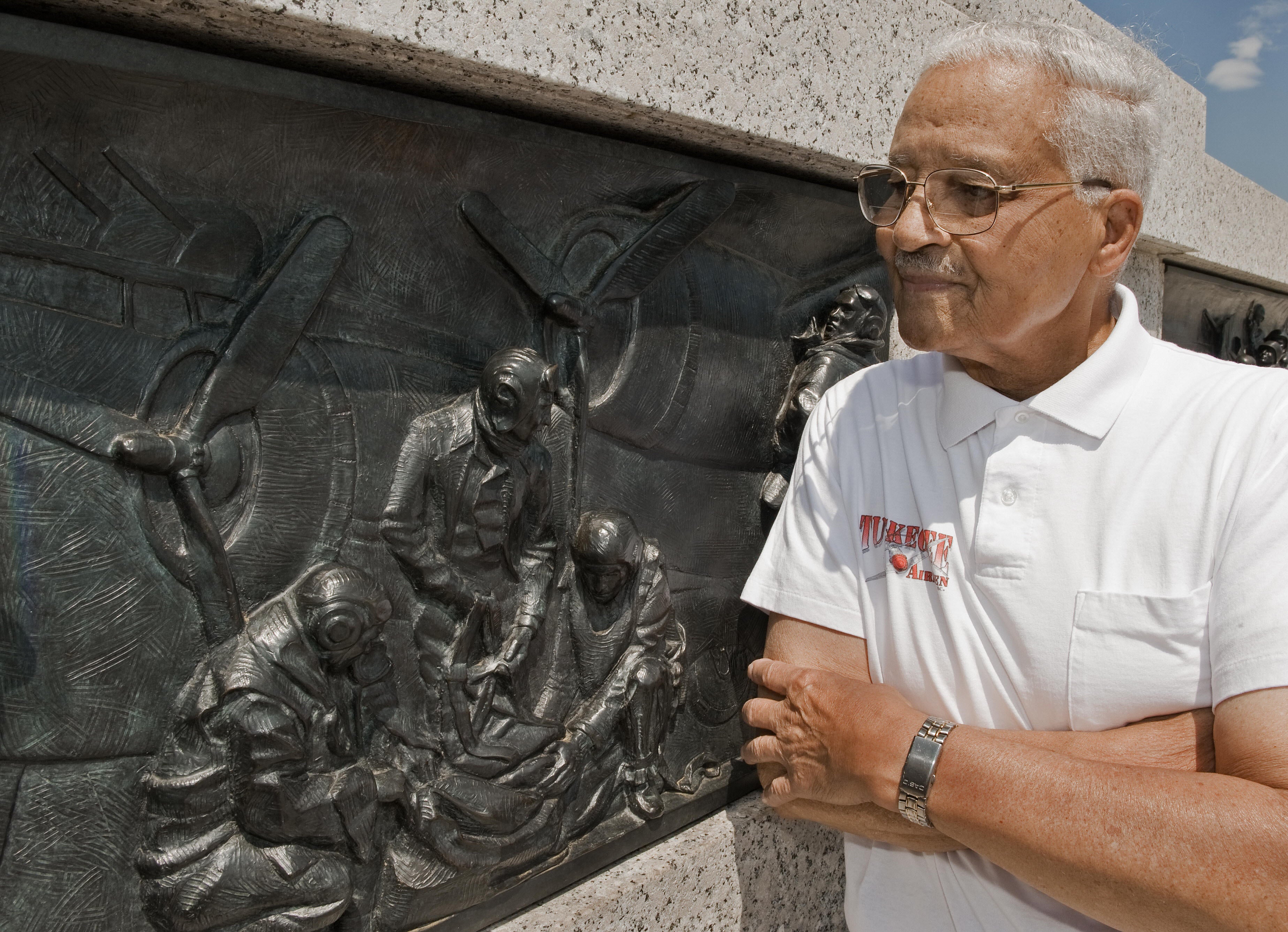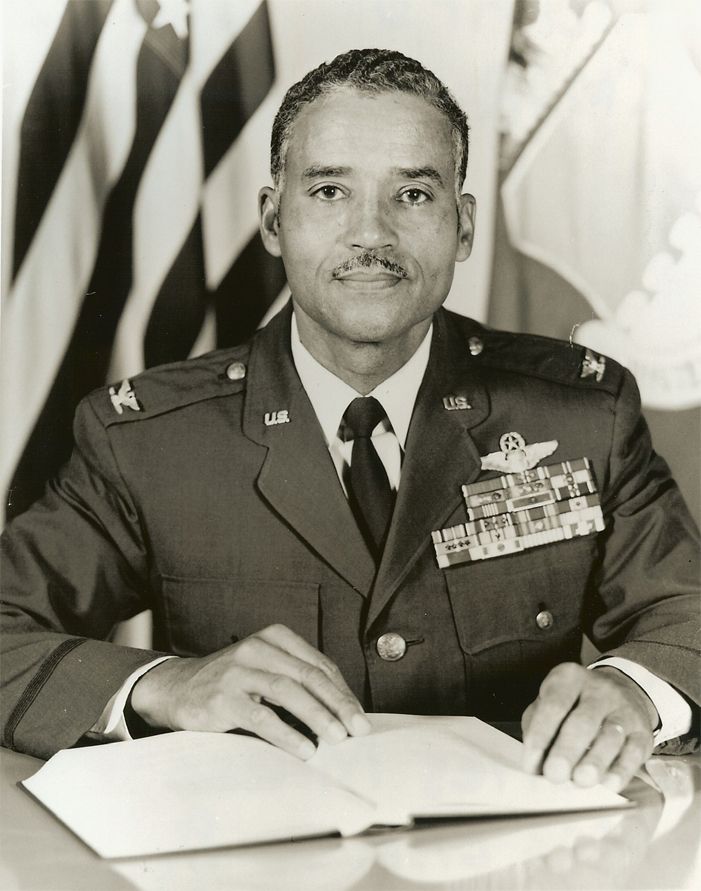Charles McGee: One of the last surviving members of the Tuskegee Airmen
The famed aviator fought discrimination to take to the skies and fly more than 400 combat missions

Charles McGee was a former wartime pilot and the last surviving member of the Tuskegee Airmen, a pioneering group of black aviators in the US armed forces.
McGee, who has died aged 102, was one of the first African American pilots to fly combat aircraft during the Second World War. Taking to European skies, his squadron escorted heavy bombers attacking targets in Germany and German-occupied territories.
“Individuals all across the country were really just interested in being accepted for who you were, being given an opportunity before being told you couldn’t do something just because of your birth,” McGee once said.
Charles Edward McGee was born in 1919 in Cleveland, Ohio, to Ruth and Lewis Allen McGee, who was a First World War army veteran and Episcopal church minister.
McGee was studying engineering at the University of Illinois when he enlisted in October 1942. Having already applied for pilot training, he was sent to Tuskegee Army Air Field where his intake learned to fly the Bell P-39 Airacobra and Curtiss P-40 Warhawk fighter aircraft. He said in a later interview: “To be able to go up there and loop roll and spin and come back and put your feet on the ground – I was hooked! Never have I forgotten that first day.”
At the time of the Second World War, the US armed forces had been entirely segregated, but in 1941, some limited integration was allowed in parts of the military. Although the black airmen faced discrimination and outright racism during their flight training, McGee later commented that “we were just as interested in supporting that effort as anybody else at that time and so we turned our back on the fact that there was segregation.”

Their role in Europe was to provide support for heavy bomber aircraft, as an escort. McGee graduated from training in 1943 and flew more than 130 missions with the Tuskegee Airmen in Europe before returning to the US to become a flight instructor with the rank of captain.

Despite their initial struggles to become accepted, the Tuskegee Airmen became a respected unit of the American military. Their exemplary wartime service would go on to influence the decision by then-president Harry S Truman to desegregate the armed forces entirely in 1948.
McGee went on to fly during the Korean War (1950-1953), as a base operations officer, stationed in the Philippines and flying 100 low-level bombing and strafing missions in the P-51 aircraft. In Vietnam, he was deployed to fly the McDonnell Douglas RF-4 Phantom photo-reconnaissance aircraft, undertaking 172 missions as commander of the 16th Tactical Reconnaissance Squadron.

By the end of his three-decade career, McGee had flown 409 combat missions. Following his retirement at the rank of colonel in 1973, McGee devoted his life to retelling the Tuskegee Airmen’s story and the lessons it had taught US society. He finally graduated with a degree in 1978, having returned to his studies interrupted by war some 36 years earlier.
McGee was awarded the Distinguished Flying Cross in 1951 whilst serving in Korea. In 2007, he and other surviving members of the Tuskegee Airmen were presented with the congressional gold medal by George W Bush “in recognition of their unique military record, which inspired revolutionary reform in the armed forces”.
The Tuskegee Airmen National Historical Museum in Detroit was established as a testament to the work of the pilots. The museum said in tribute: “An African American in a segregated US military, McGee battled against institutional racism and discrimination while serving his country in uniform for over 30 years. He embodied the mantra that he liked to pass on as advice to younger generations: ‘perceive, prepare, perform, and persevere’.”
“Today, we lost an American hero,” US defence secretary Lloyd Austin said. “While I am saddened by his loss, I’m also incredibly grateful for his sacrifice, his legacy and his character.”
McGee married Frances Nelson in 1942, who died before him. They had two daughters and a son.
Charles McGee, pilot, born 7 December 1919, died 16 January 2021.


Bookmark popover
Removed from bookmarks